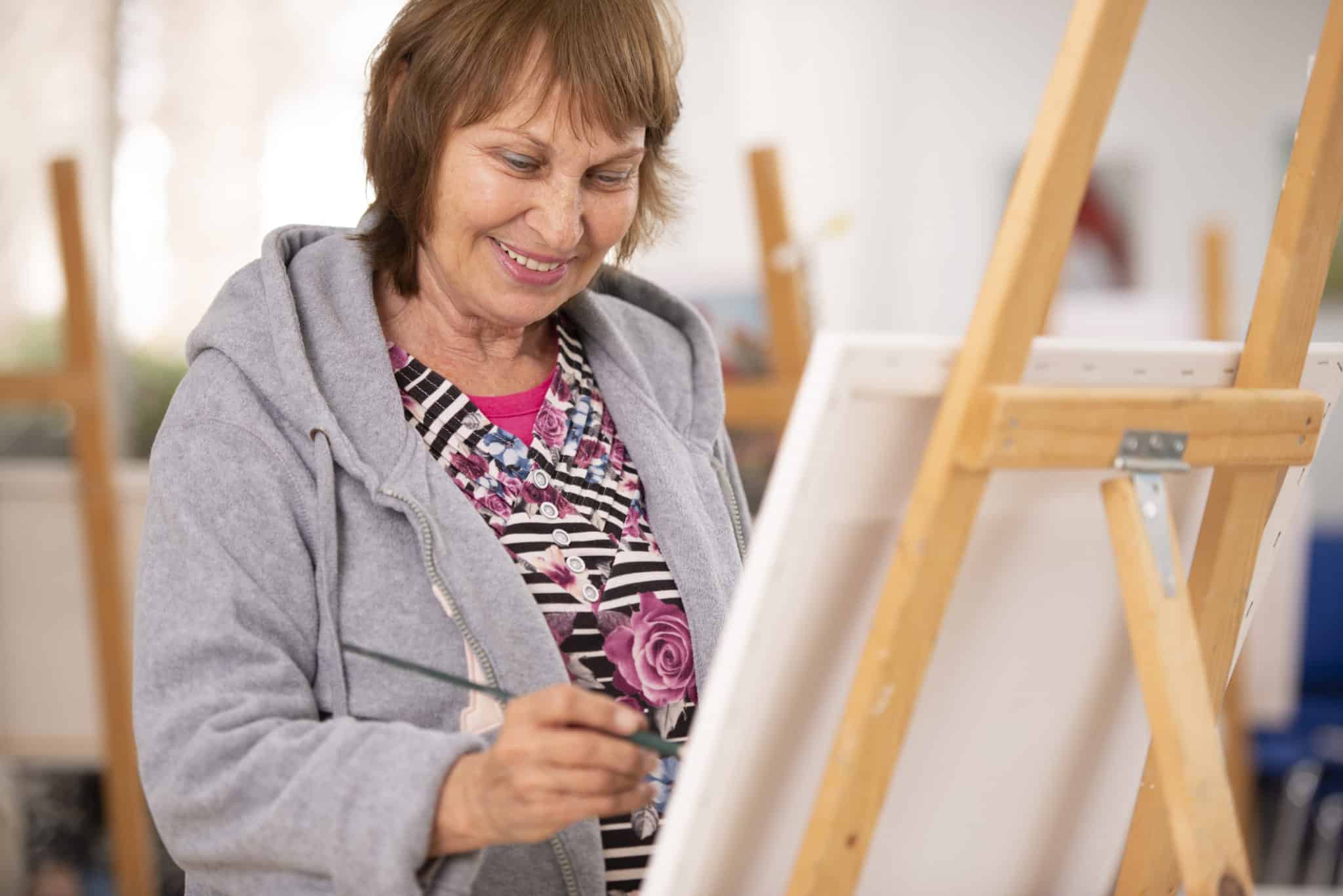3 Non-Medical Therapies That Support Seniors with Alzheimer’s

Not all therapies for memory related illness like Alzheimer’s involve administering medication. There are many non-medical Alzheimer’s therapies that can be done ㅡ they just require time and consistency. People with Alzheimer’s disease often benefit from doing the same set of actions or activities over and over, as repetition and regularity creates familiarity and can provide comfort.
Non-medical therapies often used for people with Alzheimer’s include:
- Talking therapy – While talking might seem like a trivial activity that simply passes the time, talking therapy can be very beneficial when customized to each person, giving them a chance to discuss their thoughts and feelings openly and candidly. It’s very important that both people establish a sense of trust, so they truly feel the benefit of a safe space and feel free to work through their thoughts and feelings.
Talking therapy can reduce stress and anxiety, and provide clarity to people with Alzheimer’s. - Person-centered care – This non-medical therapy focuses on understanding the person fully: their hobbies, likes, dislikes, lifestyle, culture, and preferences, and strives to view all situations from their point of view.
It also emphasizes giving the person the chance to try new things and develop new interests in order to keep their mind active. Person-centered care benefits greatly from the input of family members who are close to the person, and they are usually asked to contribute to developing a care plan for their loved ones. - Art therapy – Many people with Alzheimer’s enjoy art therapy as part of their everyday lives and the choices are plenty. Painting, drawing, sculpting, and knitting can help ease anxiety, eliminate stress, and give the person something positive to focus on.
Learn about Memory Care at United Methodist Communities in Camden County NJ
Non-medical therapies can help people with dementia related illness, but sadly there is no cure. Once a loved one receives the diagnosis it’s a matter of doing whatever you can to make their life as comfortable as possible and slowing the progression of the disease. Advanced memory loss can require around-the-clock care by professionals as the condition progresses.
You’ve heard the expression “it takes a village,” and this is especially relevant for people with Alzheimer’s. UMC at Collingswood, through our “Tapestries” Memory Care program, is fully equipped to maximize the comfort and safety of residents. Our staff is specifically trained to care for people with various neurocognitive disorders.
Technology like nurse call and wander systems are employed as appropriate. Apartments are laid out and equipped for safe living and medication and other therapies are supervised. Life Enrichment Team Specialists build personal relationships with both residents and their families. Associates are familiar with each resident’s history, preferences, culture, and needs. The entire UMC Tapestries team works as a village to foster and empower residents to live their lives fully and safely.
Making the decision to place a loved one into permanent care is never easy. We’re here to provide compassion and advice to ensure you make the best decision for your family. To learn more about Tapestries Memory Care in beautiful Collingswood NJ, please contact us today. We look forward to hearing from you.





